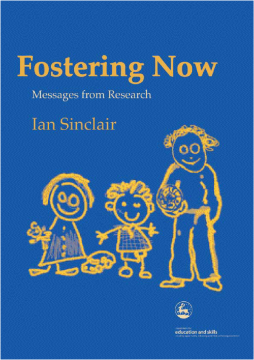
Additional Information
Book Details
Abstract
* What are the consequences of fostering for children, their carers and their birth families?
* What are the best ways of recruiting, retaining and supporting foster carers?
* What are the most important elements of a successful placement?
* Can foster care offer a permanent alternative to care at home?
Fostering Now brings together authoritative research on foster care in the UK. It provides a succinct overview of a wide range of research projects and highlights the main implications for policymakers and all professionals involved in the fostering process.
Drawing on the varied experiences and views of foster children, social workers, foster carers and parents, this book looks at how placement outcomes are influenced by factors such as foster carers' parenting styles, contact with the child's own parents, and the child's gender, ethnicity, age and physical and emotional health. Other important areas examined include care given by relatives, the effects of foster care on education, and what happens to foster children when they return home.
Fostering Now identifies the most significant challenges currently faced by foster care and draws out the key messages for policy and practice. It offers important insights into the state of foster care today, and suggests how it can be improved in future. This book is essential reading for social workers, policy makers, academics and foster carers.
This volume provides an overview of recent research on foster care in the UK. Drawing upon the varied experiences of foster children; social workers, foster carers, and parents, it identifies how placement outcomes are affected by factors such as foster carers' parenting styles and children's gender, ethnicity, age, and physical and emotional health. Other issues addressed include (for example) the recruitment and support of relative carers (such as grandparents) and the effects of foster care on education.
Book News
Ian Sinclair has succeeded in producing a volume that deserves to be read and used by all those involved in the contemporary looked after system. The title implies that the focus is exclusively on foster care. Those working in other areas of family placement would also derive much benefit from reading this book.
Research in Practice Newsletter
Ian Sinclair is Co-director of the Social Work Research and Development Unit at The University of York, where he has been responsible for a large programme of work on children's homes and foster care. His research interests include attachment theory and the evaluation of social work and social work services.
Consultant Editor: Carolyn Davies, Institute of Education. Carolyn was formerly Chief Research Officer in Social Care at the Department of Health and then at the Department for Education and Skills. She led the commissioning and oversight of the studies reviewed in this book. Carolyn has a strong interest in the effective dissemination and utilisation of high quality research.
The Department of Health can be justly pleased with the high quality of the research which it has commissioned and the reader can be assured that this book is built on solid foundations. There is, indeed, a substantial amount of the evidence upon which we are now exhorted to base practice. The book will be an excellent starting point for this, clarifying the particular issues with which the policy-makers, managers or practitioners may be grappling and referring them back to specific studies.
Child and Fostering Social Work
The book is well laid out. It helpfully begins with an overview of how fostering has changed in the last 20 years in the light of legislation and fostering... I would recommend it as an essential reading for all involved in fostering.
Foster Care
